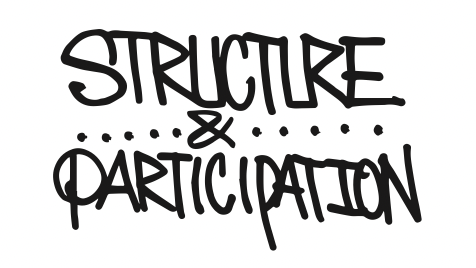
Some of the key issues that often correlate, coincide, or are caused by the elements of "Structure & Participation" in a cooperative are as follows -
COOPERATIVE CULTURE
The container - i.e. the structure and systems - in which a cooperative group functions shapes how people relate to and communicate with one another, i.e. the culture of the cooperative. As outlined in some of the points in this "Structure & Participation" section, if a lack of transparency prevails (i.e. inequitable communication across relationships), distrust will grow and community cohesion will degrade - along with its culture. Relatedly, if the mechanisms of contributing to organizational discourse or participating in decision-making are made impotent (e.g. performative General Assemblies), members can become disempowered and cease participating fully - creating a culture of contagious disengagement that can result in a literal shutdown of a cooperative’s structures and systems when quorum (or the quota amount of members required for a cooperative to be able to formally convene a meeting and take decisions) cannot be met for meetings due to insufficient attendance. Culture both informs structures and systems of particiation and cooperation, and is protected and sustained by them - if one element of this equation fails, the other will, as well.
COOPERATIVE DEVELOPMENT
During any development process, though especially the start-up, of a cooperative organization, there can be a tendency to over-design a cooperative’s systems in endeavoring to account for every potential challenge or opportunity. Sometimes something looks amazing in theory that is impossible to enact in practice, meaning that designing structures and systems in an exercise in both theorizing and trial and error. Additionally, much of the existing cooperative literature and mainstream advice for cooperatives undergoing development is incredibly prescriptive when it comes to structures and systes - e.g. directing cooperatives to install Boards of Directors without assessing their unique needs and culture, strongly delineating governance and operations. It is important that cooperatives develop their structures and systems with constant regard to their idiosyncracies and to the Cooperative Identity as a comprehensive philosophy with almost infinite expression, rather than as a structural checklist.
LEADERSHIP
Most conventional organizations depend on formalized leadership roles to identify and empower leaders. In other words, they bake leadership into the structure of their organization in the forms of titles and job descriptions, rather than consider leadership to be a natural expression of culture and the capacity and passion of individual’s at any given time. When leadership is hardwired into a cooperative in the form of titular leadership roles or rigid management structures, it can prohibit the development of organic leadership or discourage the participation of individuals who may have leadership skills they would like to develop but don't wish to or are not ready to hold a formal role.
